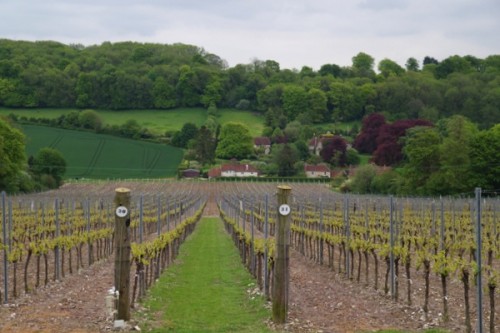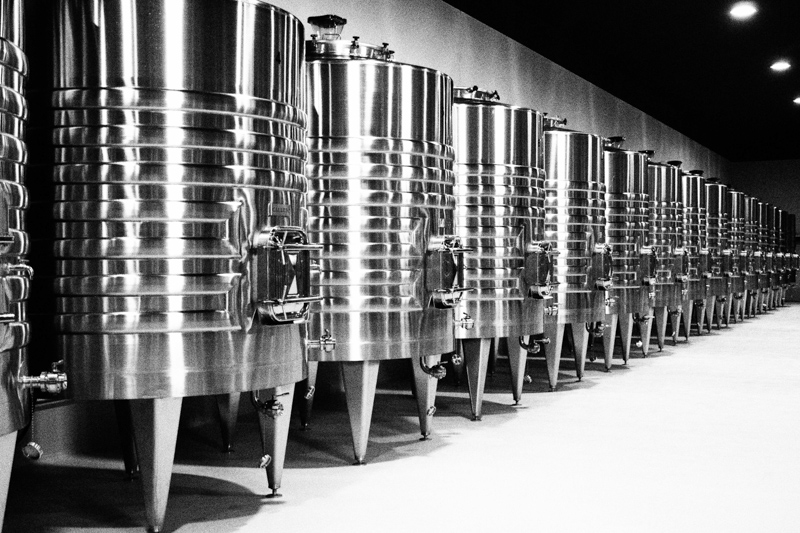
There’s a lot of excitement about English sparkling wine at the moment. Justifiably so. But there is one small cloud on the horizon.
It’s called route to market. Soon, because of all the new vineyards that have been planted over the last decade, there will be quite a bit of wine that needs selling. And the ability to shift lots of wine requires appropriate routes to market. This is where there could be a bit of a bottleneck.
The quality is there. The price is right (in the £20-£30 sweet spot, which is just a little below the price of well known Grand Marque Champagnes). The British public certainly like bubbles: we’re the largest export market for Champagne, guzzling 33 million bottles annually.
Theoretically, the growth in English sparkling wine could come at the expense of Champagne sales, plus some extra sparkling wine category growth. But the issue will be getting wine into people’s hands. Currently, Waitrose and Marks & Spencer are offering decent English sparkling wine ranges, but their lists are close to saturation point, and there’s only so much wine they can sell. Restaurants are beginning to wake up to the potential of selling English fizz, especially by the glass. But there, English producers are fighting against an efficient Champagne sales machine, that often buys the right to by the glass pours.
The nightmare scenario is one of over-supply and distressed sales of stock, pushing the price down, which would damage the English sparkling wine brand. The other worry is poor quality buyer’s own brand English sparkling wine: if this is a punter’s first experience of English fizz, this will be a shame and could well turn them off. Lidl have an English sparkling wine in their range and it isn’t very good, for example.
If English sparkling wine is to achieve its potential, then two things are needed. First, anyone with any volume to shift will probably have to hire an experienced trade salesperson – for example, Hattingley Valley have recently done this. These wines will need selling.
Secondly, export is going to be key. While demand is given time to grow in the UK, sparkling wine producers should look to establish export sales. Ridgeview, for example, expect to sell 30% of their production abroad in 2016. At ProWein this year there was a strong English sparkling presence, and the wines seemed to be well received. Even if export isn’t currently essential, now is the time to begin working with partners in other markets. Even if only small quantities are sold, these markets will take time to mature, and it’s much better to begin working now rather than start focusing on exports in a panic in a few years time.
English sparkling wine is getting a lot of attention, but the wave hasn’t come yet. When that wave of opportunity comes – having lots of wine to sell, and export markets interested in it – it’s vital that the key producers are ready to catch it. Now is definitely the time to start focusing on foreign sales.
4 Comments on Why English Sparkling Wine producers need to export

Price will continue to be the biggest export challenge to English sparkling, with that 25-30 quid market hotly contested not just by premium Champgagne but also top cava, Franciacorta or, here in Australia, top local fizz.
For example, there have been brief forays (by Ridgeview amongst others) into the Australian market (which is large – we’re the 5th largest Champagne market) without success, simply because there is no profile for England as a wine producing nation. Rather, it’s a notion that is often scoffed at.
There is a long way to go for English sparkling…
Building on our success of introducing and exporting wines of Virginia to the UK we started work with English sparkling wine producer Ridgeview to launch their latest vintage in the US. Ridgeview is now available in Washington DC, Virginia, New York and other States. I agree with your view Jamie. We establish presence and placement, a strong foundation for long term growth when production levels increase. We are looking forward to working with more English sparkling wine producers and continuing our work with Virginia winemakers.
Whilst export markets may be attractive to some producers – especially those larger and already well established ones – for most of the 150+ UK sparkling wine producers the costs of both finding and then maintaining export markets are prohibitive. I firmly believe that as newer producers come on stream and there is more Engish Sparkling Wine available, then there will be more outlets, both on and off-trade, who will want to stock it. This much greater exposure will itself stimulate sales and further spread the message that these wines are good and worth buying. Think also of the wedding, gift, party, presentation, function markets – all places where sparkling wines get used. These markets are still underexposed.
Tell them to send some this way please! We have some comparative tasting to do!